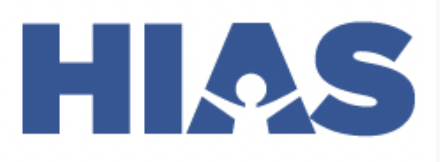Landscape Analysis Consultant (Greece)
Lesbos
- Organization: HIAS
- Location: Lesbos
- Grade: Consultancy - Consultant - Contractors Agreement
-
Occupational Groups:
- Agriculture and Forestry
- Closing Date:
Implementation period: 1 January 2023 - 29 February 2024
OBJECTIVE
HIAS Greece is seeking an experienced consultant to undertake a landscape analysis for their project EMPOWER, which seeks to complement and leverage existing regional efforts to combat anti-hate crimes initiatives and other work to combat discrimination against marginalized populations. This is a joint project with HIAS Greece. Collaborative work between the selected consultant and the Greece counterpart will be expected for the final report.
CONTEXT
Europe is experiencing alarming levels of xenophobia and hate speech. People of African descent and Roma bear the brunt of this phenomenon, aggravated by a worldwide legacy of colonization and slavery and modern dynamics of forced migration. Additionally, the COVID-19 pandemic led to a rise in misinformation targeting Roma and migrants, with xenophobic and racist narratives claiming that these groups caused or spread the virus. These exclusionary worldviews are often coupled with extreme misogyny and homophobia, creating more layers of vulnerability for women and LGBTQI+ people. In 2022, the global number of displaced people topped 100 million for the first time and continues to grow, while in recent years, nativist politicians around the world, along with social, economic, and climatic crises, have only increased the marginalization of refugees, asylum seekers, and other migrants.
Serious incidents of racism, institutional discrimination, and hate crimes against migrants and refugees are unabated and unaddressed in Greece, creating a climate of impunity which in turn fosters racism and discrimination throughout the country and region. The numerous racist attacks which have occurred during the past yearssome of them perpetrated by individuals already facing charges for other racist attacksserve as vivid evidence that delays in the administration of justice leave perpetrators free to commit further attacks, while failing to deter others. There has been an increase in harassment and abuse directed at migrants and LGBTQI+ communities following the recent election far-right extremist candidates in Greece. Adversely, migrants and asylum seekers are often accused of crimes that do not constitute criminal offenses but still result in pre-trial detention. This trend contributes to racist and xenophobic narratives that closed camps and increased surveillance of migrants are necessary for Greek safety and security. The government of Greece continues to threaten and harass civil society organizations (CSOs) and human rights defenders who support refugees and migrants. HIAS Greece continues to provide direct legal support to challenge these policies and uphold the rights of individuals affected. Roma also continue to face widespread discrimination and abuse in Greece, ranging from exclusion from the formal economy and schools to violence at the hands of the police, even resulting in death. The government of Greece has established a National Roma Integration plan and an anti- racism action plan, which offer opportunities to demand accountability in their implementation.
CSOs across Europe work in an increasingly difficult environment where EU border policies threaten progress on human rights for migrants, refugees, and other vulnerable categories. EU initiatives defending the rights of Roma have been slow to achieve meaningful changes in national contexts. Violent border practices and racism against asylum seekers and refugees of African descent and migrant Roma populations have been flagged in countries including Hungary, Serbia, Croatia, and Poland. Organizations and individuals on the frontlines of defending and protecting the rights of marginalized and ethnic communities in these countries and elsewhere in Europe are often deeply engaged in the urgent day-to-day struggles to protect and assist vulnerable individuals and defend against attacks by governments or hostile members of the public. CSOs report staff burnout and less time to establish linkages and conduct advocacy or engagement with international and regional human rights bodies and mechanisms, including the Permanent Forum for People of African Descent.
To address these challenges, HIAS Greece and Romania implement a 24-month program entitled EMPOWER: Empowering Marginalized Populations to Overcome Racism in Europe. HIAS and its local partners in Greece (Generation 2.0 RED) and Romania (National Council for Refugees (CNRR) and Carusel) have designed the program with direct feedback from marginalized racial and ethnic communities and will jointly advance the following goal: Marginalized racial and ethnic communities in Europe, including people of African descent and Roma people, are empowered to advocate for and secure their rights. To accomplish this goal, HIAS and its partners will take a multifaceted approach of building resilience at the individual and community level to mitigate the effects of systemic racism and advance strategic litigation and advocacy to challenge racist systems and norms while strengthening the capacity of local actors to sustain impact after the project ends. This approach is reflected in the projects three mutually reinforcing objectives:
-
Objective 1: CSOs working with marginalized racial and ethnic communities in Europe are better supported, informed, and organized, resulting in best practices that can be shared, leveraged, and multiplied.
-
Objective 2: Civil society is effective at raising awareness of the challenges and opportunities for members of marginalized racial and ethnic communities, including people of African descent and/or Roma, by combatting structural racism, discrimination, and xenophobia in local communities.
-
Objective 3: CSOs advance the objectives of the UNs International Decade for People of African Descent & meaningfully engage with the Permanent Forum for People of African Descent and regional European mechanisms to address structural racism, xenophobia, and intolerance.
OBJECTIVE & SCOPE OF THE LANDSCAPE ANALYSIS
The purpose of the landscape analysis as detailed below:
-
Map the existing efforts (projects, initiatives, local authority programmes, regional programmes, etc.) in Greece to combat hate crimes and discrimination against marginalized racial and ethnic communities, especially people of African descent, Roma, and migrants. Discrimination can entail verbal abuse and intimidation, but also restricted access to the job market, unfair or biased behaviour of employers, and lack of transparency on work contracts; it can also mean heightened risks of GBV and harassment in the job place, unfair or biases behaviour of employers, lack of transparency on work contracts or payments; it can also mean heightened risks of GBV, harassment or various demeaning practices.
-
Assess the needs of local CSOs combatting hate crimes and discrimination against marginalized racial and ethnic communities, including people of African descent, Roma, and migrantswith special focus on advocacy (national and European), legal aid and economic inclusion.
-
Baseline data collection on:
- Population profiles of refugees, asylum seekers, and migrants of African descent currently in Greece: numbers, duration of stay, long-term intentions, profiles (women, men, unaccompanied minors, single-headed households, etc.), economic situation, and integration situation.
- Frequent situations of discrimination by refugees, asylum seekers, and migrants of African descent.
- Frequent situation of discrimination in the labour force encountered by Roma, including reasons for refusals of employment.
- Interactions and experiences with local government, CSOs, and other actors approached for support by people of African descent and Roma.
- Urgent needs and concerns of people of African descent and Roma in the prevention and response to discrimination.
- Urgent needs and concerns of CSOs and government actors working on the integration and non-discrimination of people of African descent and Roma.
-
Identify and articulate recommendations for HIAS on how to support best CSOs in the gaps identified.
METHODOLOGY
The selected consultant will be expected to spend several days in Greece. The field work will be coordinated closely with, and facilitated by, the HIAS Greece team.
The selected consultant is expected to develop the methodology, methods, and tools for data collection and analysis. The first deliverable will be a 23-page document outlining methodology and data collection methods.
The consultant is expected to use a participatory and rights-based approach that takes into account gender, socioeconomic status and contextual factors and that centres the experiences of project participants, i.e., the CSO workers and local authority officials with whom HIAS has interacted or plans to interact within the context of the projects implementation.
A detailed landscape analysis design will be developed by the consultant and should make use of a mix of data collection tools: desk review, field visit, interviews (in person and/or over the phone), questionnaires, as well as through reviewing other documentation such as appropriate.
The landscape analysis of Greece will feature together with the landscape analysis of Romania in one report. The consultant will be expected to work with the consultant for Romania to draft the final report and add a short overview of the context in the European Union.
PRIMARY DELIVERABLES
- Document outlining proposed methodology and approach. (2-3pages).
- Assessment toolkit, to include (but not to be limited to) Focus Group Discussion guides and/or Key Informant Interview guides.
- Final report including 1) Executive Summary 2) Key Findings 3) Programmatic Recommendations. The tools, interview lists, and other relevant material should be placed in annex.
- Web-based presentation of findings and recommendations to HIAS colleagues.
SAMPLE WORK BREAKDOWN
What Comment/Associated Product
Consultations with Country Program Managers from Greece and Romania: Consultations to ensure consultant is familiar with the context and the project.
Desk review: Read relevant project documents, including project proposal, research existing projects through accessible platforms (e.g., EU funded projects)
Methodology Document: The document will outline the Consultants suggest methodology including tools and approaches to be used.
Tool Development: Interview Guides, FGD guides, other tools finalized.
Data Collection in-country Greece: Interview with key stakeholders, focus group discussions, and observational visits to HIAS Greece partner sites.
Data Collection in-country Romania: Interview with key stakeholders, focus group discussions, and observational visits to HIAS Romania partner sites.
Draft Report: One round of feedback from HIAS
Review / Final Report: Feedback incorporated from review of draft report.
Debrief: One-hour web-based debrief with key stakeholders on findings and recommendations.
QUALIFICATION & REQUIREMENTS
-
Advanced university degree (masters degree or equivalent) in human rights, psychology, social sciences, social work, law, political science, international relations or other relevant disciplines.
-
At least 5 years demonstrated experience in designing, implementing, and conducting assessments, evaluations, and research of human rights and/or development programming, preferably working with marginalised populations, ethnic or religious minorities, refugees and/or forcibly displaced populations;
-
Experience in age, gender and diversity mainstreaming and community-based and human rights approaches preferred
-
Experience conducting and facilitating interviews and group discussions in cross-cultural contexts
-
Excellent research and communication (oral and written) skills
-
Oral and written fluency in English required. Knowledge of Greek and/or Romanian would be a distinctive advantage.
Application Instructions:
Please submit your resume, cover letter and employment application to our website.
SAMPLE HIRING PROCESS:
We are committed to a fair and respectful hiring process, and we do our absolute best to respond to every applicant. We prioritize communication and transparency with all candidates, even those who are not moving forward. Heres a snapshot of our hiring process:
Step 1: Submit your application!
Step 2: Phone screen with a Human Resources staff person.
Step 3: Interview with the hiring manager.
Step 4: Interview with a panel of HIAS employees.
Step 5: Reference check.
Step 6: Offer and background check.
Step 7: Start your professional journey with HIAS!
Note: Some of our hiring processes may vary, and not all candidates will advance to each step.
ABOUT US
Over one hundred years ago, the Jewish community founded HIAS (originally the Hebrew Immigrant Aid Society) in New York City, the immigrant gateway to America. Supporting Jews fleeing persecution and poverty in Eastern Europe, our founders were guided by the traditions, texts, and history of the Jewish people a history of oppression, displacement, and diaspora. HIAS has since helped generations of Jews facing violence because of who they were, and HIAS remains committed to helping Jewish refugees anywhere in the world. Today, our clients at HIAS come from diverse faiths, ethnicities, and backgrounds, as do our staff. We bring our experience, history, and values to our work across five continents, ensuring that refugees today receive the vital services and opportunities they need to thrive.
HIAS is a learning community, committed to diversity and inclusion. We do our work with integrity, accountability, transparency, and a commitment to the highest ethical standards. We seek employees from diverse backgrounds and life experiences to join our teams located in the United States and across the globe. People who identify as BIPOC, people with disabilities, people from the LGBTQ+ community, and people with lived experiences of forced displacement or immigration are all encouraged to apply. We are committed to building a diverse workforce that reflects our vision, mission, and values.
VISION
HIAS stands for a world in which refugees find welcome, safety, and opportunity.
MISSION
Drawing on our Jewish values and history, HIAS provides vital services to refugees and asylum seekers around the world and advocates for their fundamental rights so they can rebuild their lives.
VALUES
Welcome Acogimiento Hospitalité (Hachnasat Orchim)
We Welcome the Stranger
Justice Justicia Justice (Tzedek)
We Pursue Justice
Empathy Empatía Empathie (Chesed)
We Approach our Clients with Empathy
Partnership Compañerismo Coopération (Chevruta)
We Believe in Changing the World through Partnership
Courage Coraje Courage (Ometz)
We Act with Courage to Build a Better World
Resilience Resiliencia Résilience (Ruach)
We Adapt and Thrive, Continuously Demonstrating our Resilience.
DIVERSITY
HIAS is committed to a diverse and inclusive workplace. All qualified applicants will be considered for employment without regard to race, color, national origin, ethnic background, ancestry, citizenship status, religious creed, age, sex, gender, sexual orientation, physical disability, mental disability, medical condition, genetic information, marital status, registered domestic partner or civil union status, familial status, pregnancy, childbirth, military status, protected veteran status, political orientation, or other legally protected.
SAFEGUARDING
HIAS is committed to the protection of children, vulnerable adults and any other person from any harm caused directly or indirectly due to their coming into contact with HIAS. We will not tolerate sexual exploitation, abuse or any form of child abuse or neglect by our staff or associated personnel. Any candidate offered a job with HIAS will be expected to sign and adhere to HIAS Code of Conduct and Safeguarding policies. All offers of employment will be subject to satisfactory references and appropriate screening checks, which can include criminal records. HIAS also participates in the Inter-Agency Misconduct Disclosure Scheme. In line with this Scheme, we will request information from job applicants previous employers about any findings of sexual exploitation, sexual abuse and/or sexual harassment during employment, or incidents under investigation when the applicant left employment. Likewise, HIAS will share this information when other organizations inquire about current and former HIAS staff as part of their recruitment process. By submitting an application, the job applicant confirms their understanding of these recruitment procedures.








